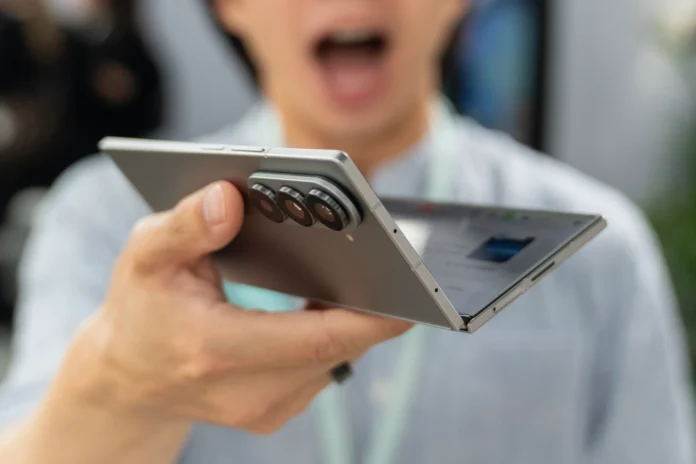Samsung has launched its latest foldable phones, including the Galaxy Z Fold 7 and a more affordable Galaxy Z Flip 7 FE, as part of its push to expand its premium product lineup and counter rising competition from Chinese smartphone makers.
The move also comes as the company works to recover ground lost after falling behind Apple in global smartphone sales in 2023.
The Galaxy Z Fold 7, priced at $1,999 in the United States, is 10% lighter and 26% thinner than its predecessor. It uses Qualcomm’s Snapdragon 8 Elite processor, while the new Flip 7 FE, priced at $899, runs on Samsung’s in-house Exynos chips.
The company said the new models aim to reduce the size and weight concerns that have affected the adoption of foldable phones.
Samsung said it is focused on strengthening its position in AI-powered smartphones through partnerships with external companies like Google. The Galaxy Z Fold 7 runs on One UI 8 based on Android 16 and includes Google’s Gemini AI voice assistant, which has also been added to Samsung’s new smartwatches.
Samsung held the launch event in New York, emphasizing its focus on the U.S., Europe, and South Korea for foldable phone sales. TM Roh, president of the company’s device experience division, said Samsung plans to launch a tri-foldable phone by the end of the year.
Samsung’s mobile president and chief operating officer, Choi Won-joon, said his main goal is to make Samsung a leader in smartphones powered by artificial intelligence. The company is targeting wider adoption of foldable phones by combining AI with its latest hardware updates.
The launch comes as Samsung faces pressure on multiple fronts. Its chip division has seen profit declines partly due to delays in supplying AI chips to key partners. At the same time, it is working to manage rising U.S. tariffs that could increase component costs and reduce demand.
To address this, the company has sped up production and shipments of smartphones bound for the U.S.
Samsung also said it is tackling China’s export restrictions on rare earth materials by diversifying its supplier base and increasing internal stockpiles. The company manufactures smartphones in Vietnam, South Korea, and India, with Vietnam accounting for more than half of total output.
Foldable phones currently make up a small share of the overall smartphone market but account for a larger portion of premium models priced above $800. Samsung’s share in this segment is facing pressure from competitors like Huawei and Honor, especially in China.




